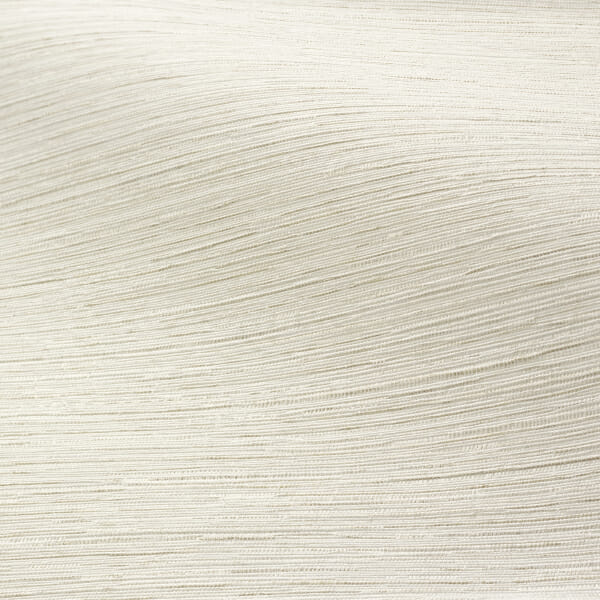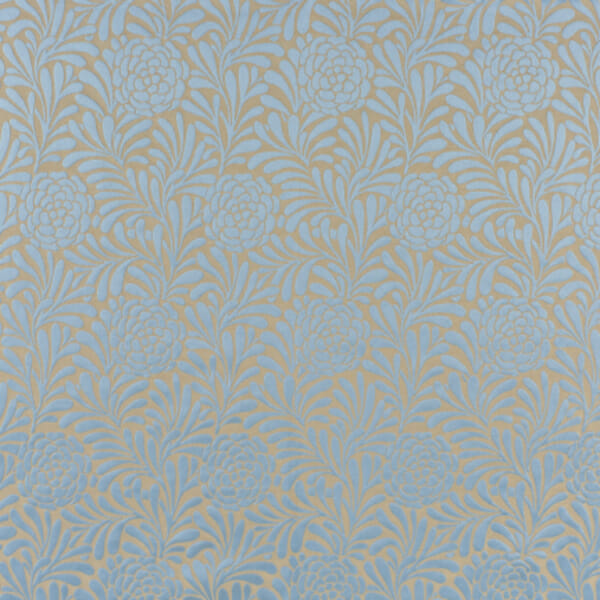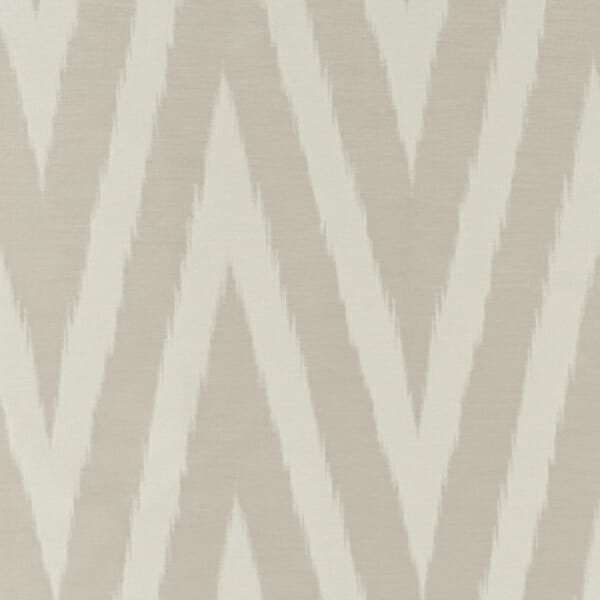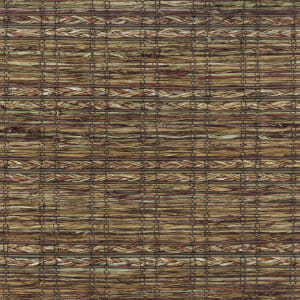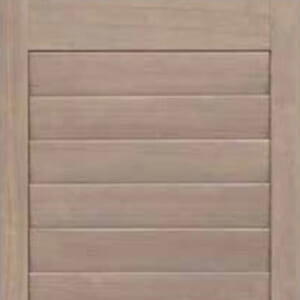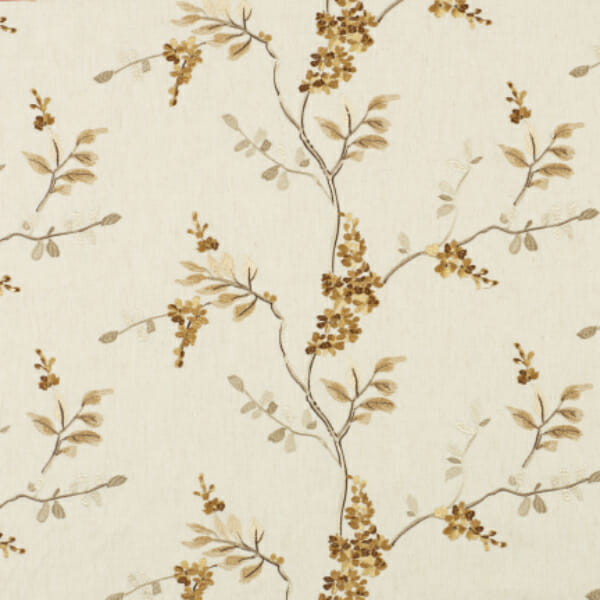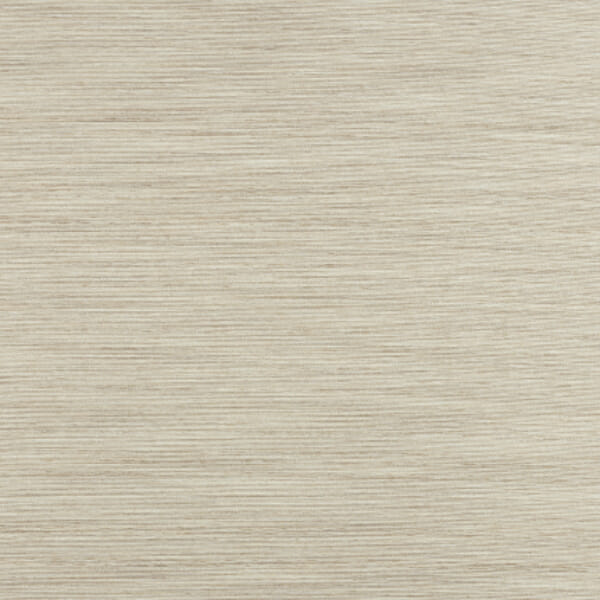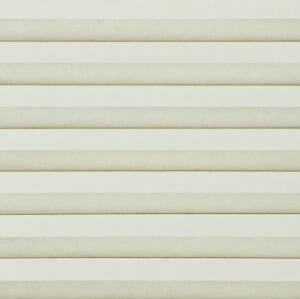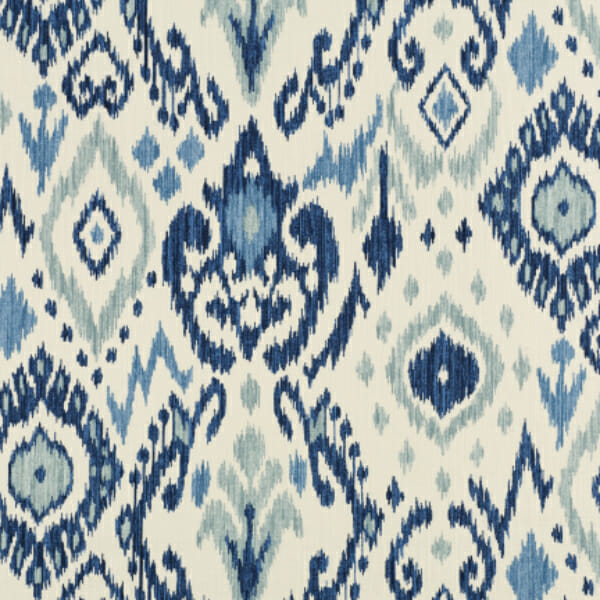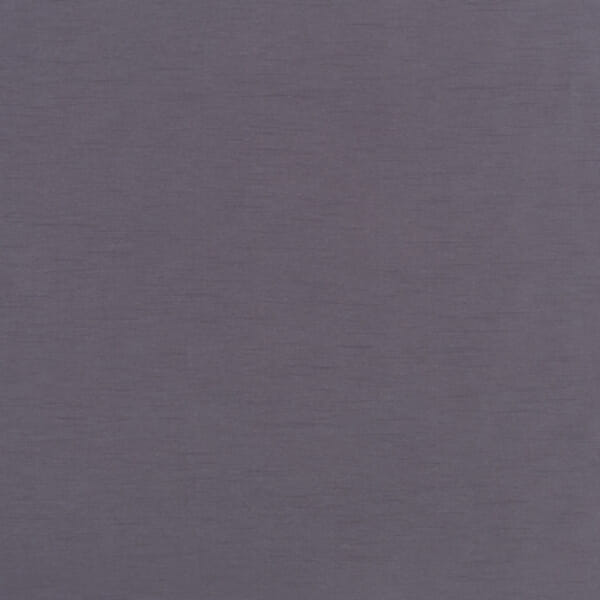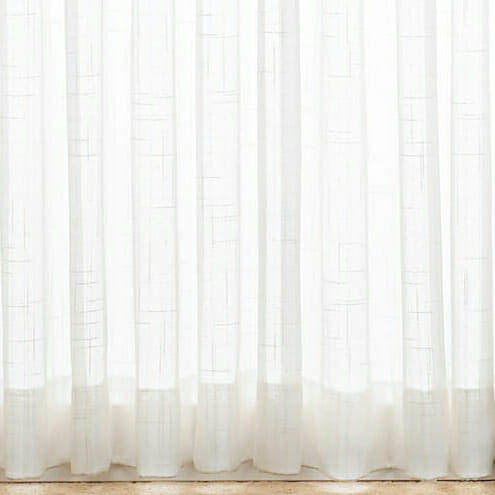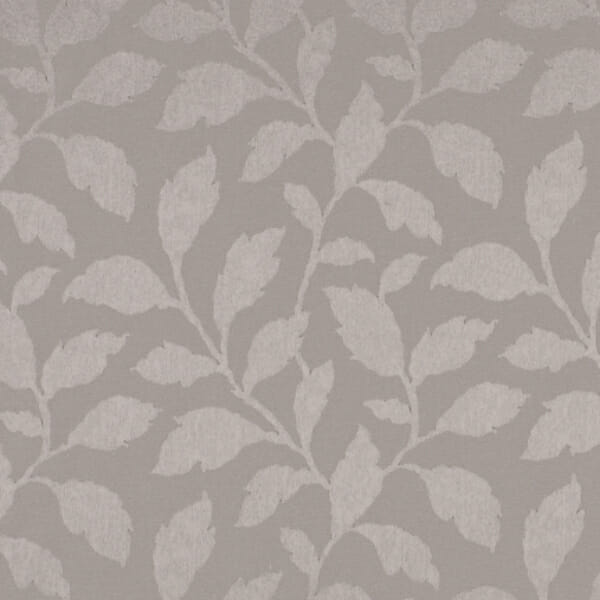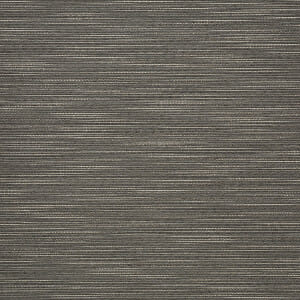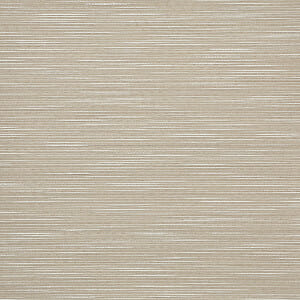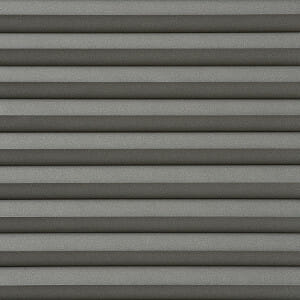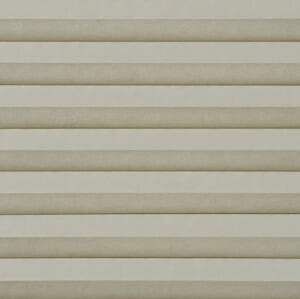The Perfect Pair: How to Layer Window Treatments
Technically, you can layer or combine almost any two window treatments by mounting the first treatment inside the window frame and mounting the second treatment outside the window frame. But as we all know, just because something can be done doesn’t mean it should be done. Not all window treatments work well—or look good—together.
Today we’re taking a look at our favorite no-fail window treatments to pair and layer.
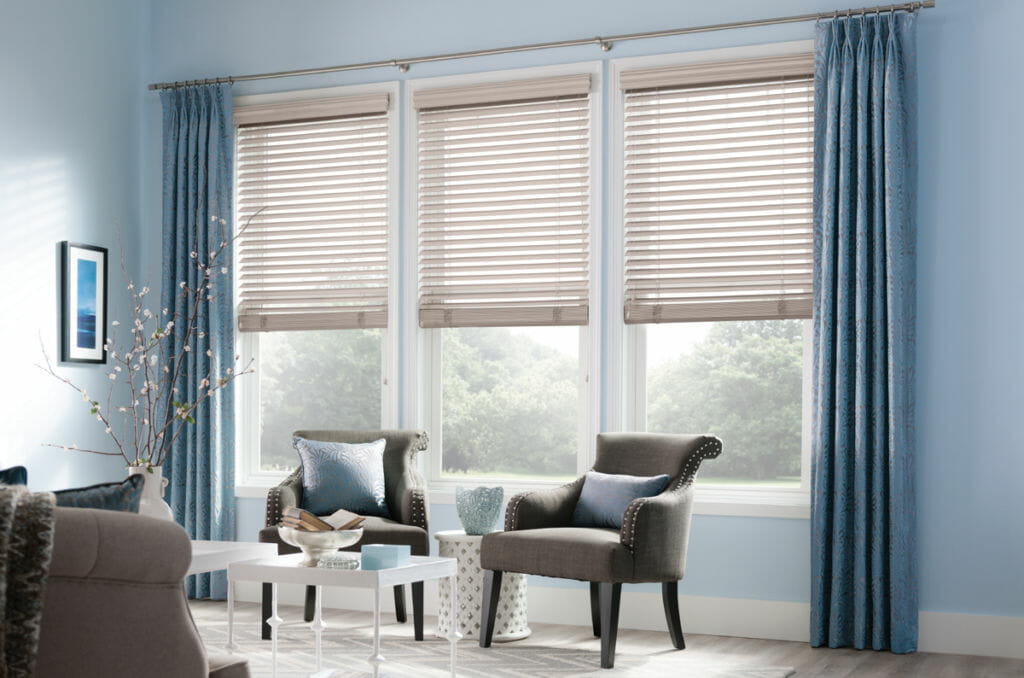
The Basics of Layering: What are your goals for your space?
How you layer window treatments depends on your goal for the room in question. Are you looking to create visual harmony in the room or create an interesting contrast? Maybe your needs are purely functional and you’re looking to create privacy or darkness. Let’s explore a few options for each of these goals.
Creating Harmony: Looking at colors & materials
If you want to create visual harmony in a room, you might want to take a visually consistent approach: for example, pairing similar textures, colors, or both.
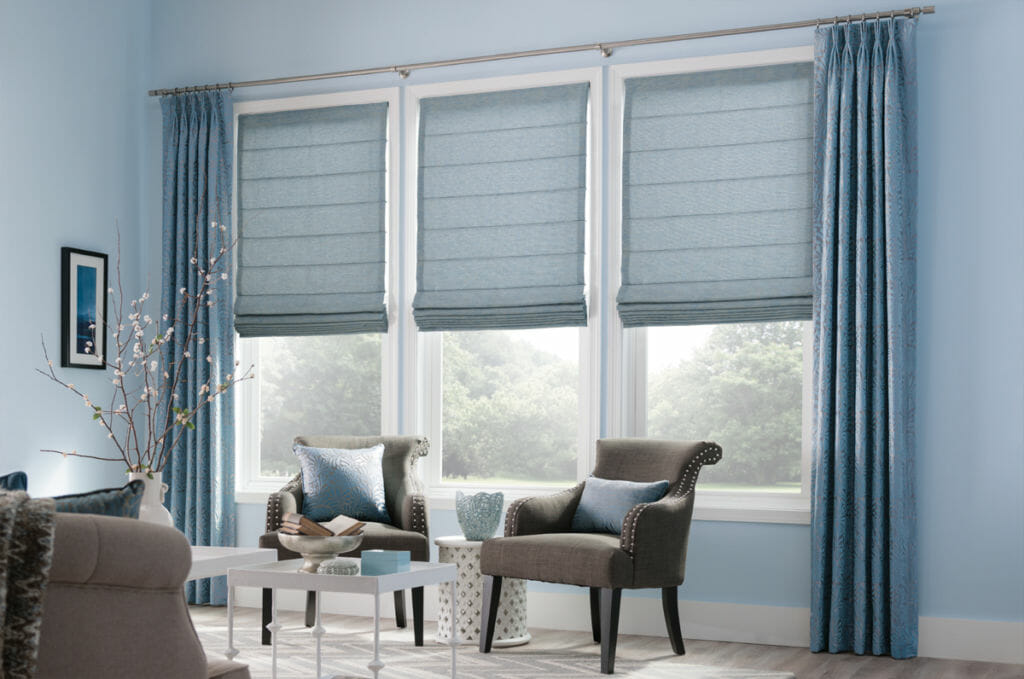
This first example uses classic flat Roman shades in a light blue, paired with a slightly darker blue drape. Both window treatments are fabric, and both belong to the same color family. Combined with the rest of the room’s blue and gray décor, this creates a tranquil and harmonious room using various shades of just two colors.
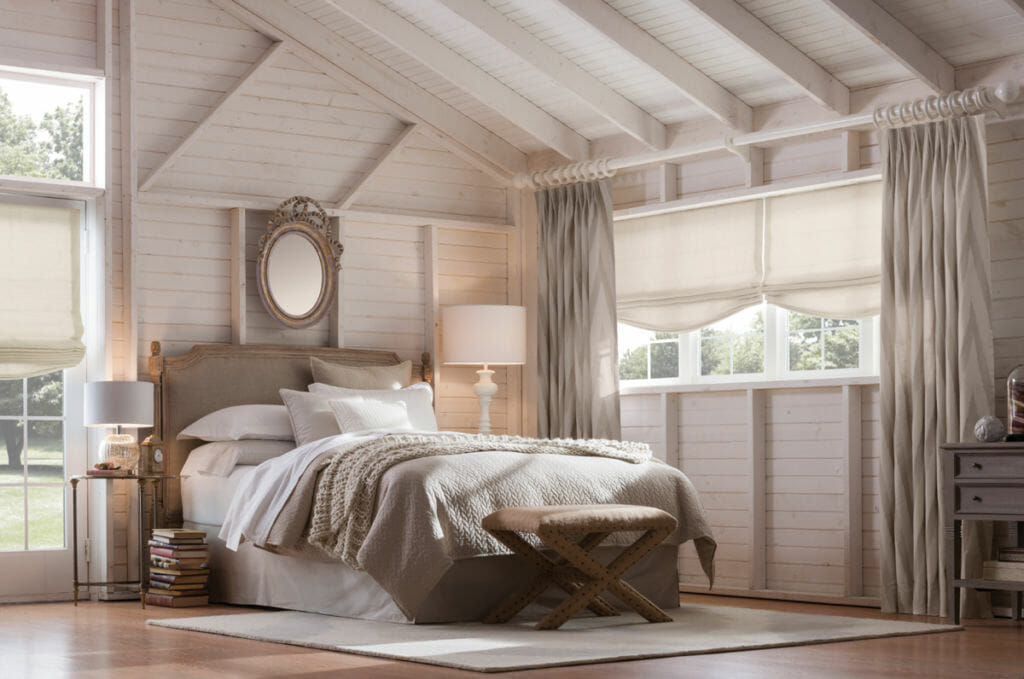
In this second example, the whole room is monochromatic (different shades of a neutral brown, from dark tan to light cream.) The paired window treatments are relaxed Roman shades combined with simple neutral-colored drapes. Both window treatments use fabric finishes. However, unlike the first example which contains two main colors, this room is all versions of the same base color, creating a space that is at the same time elegant and cozy.
EXPLORE THESE STYLES
Creating Contrast: Looking at texture & pattern
Sometimes you want to make a statement in your home. One of the best ways to do this is to incorporate some kind of eye-catching contrast in the room. This can be achieved by combining two different textures, colors, or patterns.
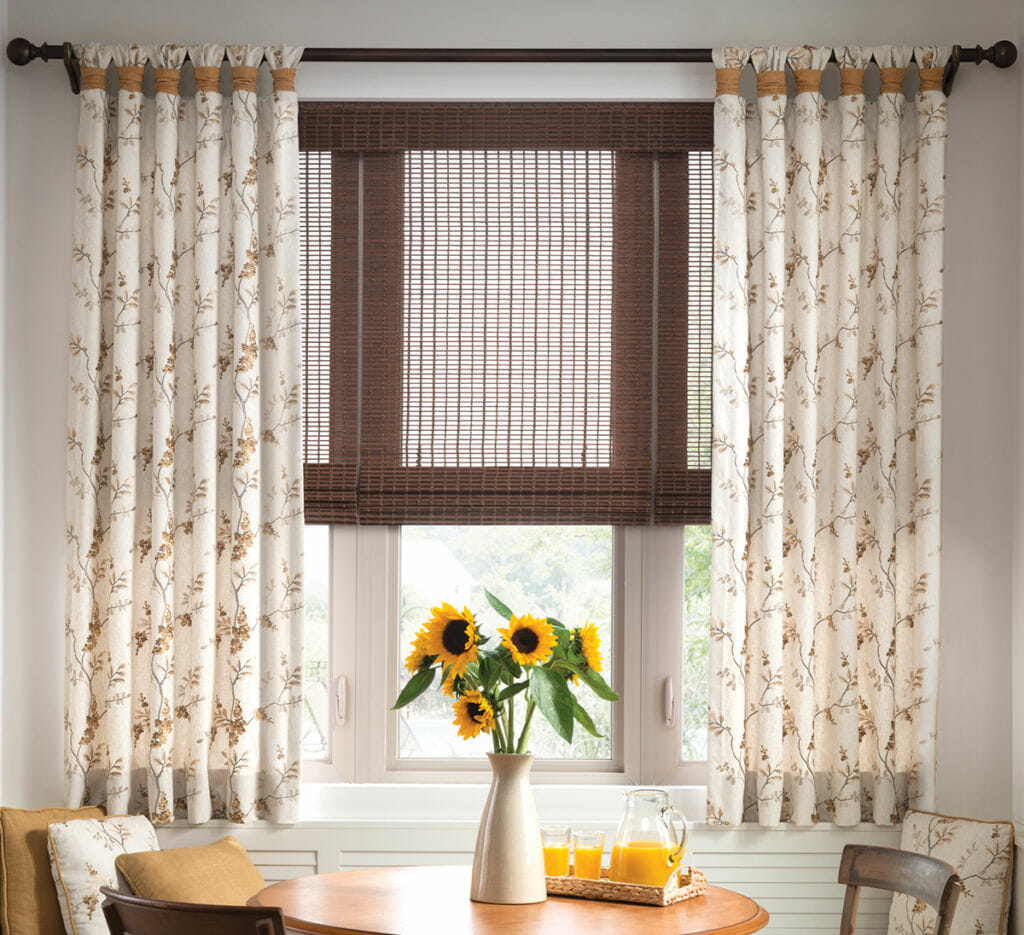
Here, we see a nice contrast created between the rough texture of woven wood shades and smooth drapes. While there is contrast between the textures, this pairing is unified with the natural motifs in both window treatments: the flowers and vines on the drapes and the natural wooden shades are both in the same style family. You want something that is visually interesting and eye-catching, but not shocking or jarring.
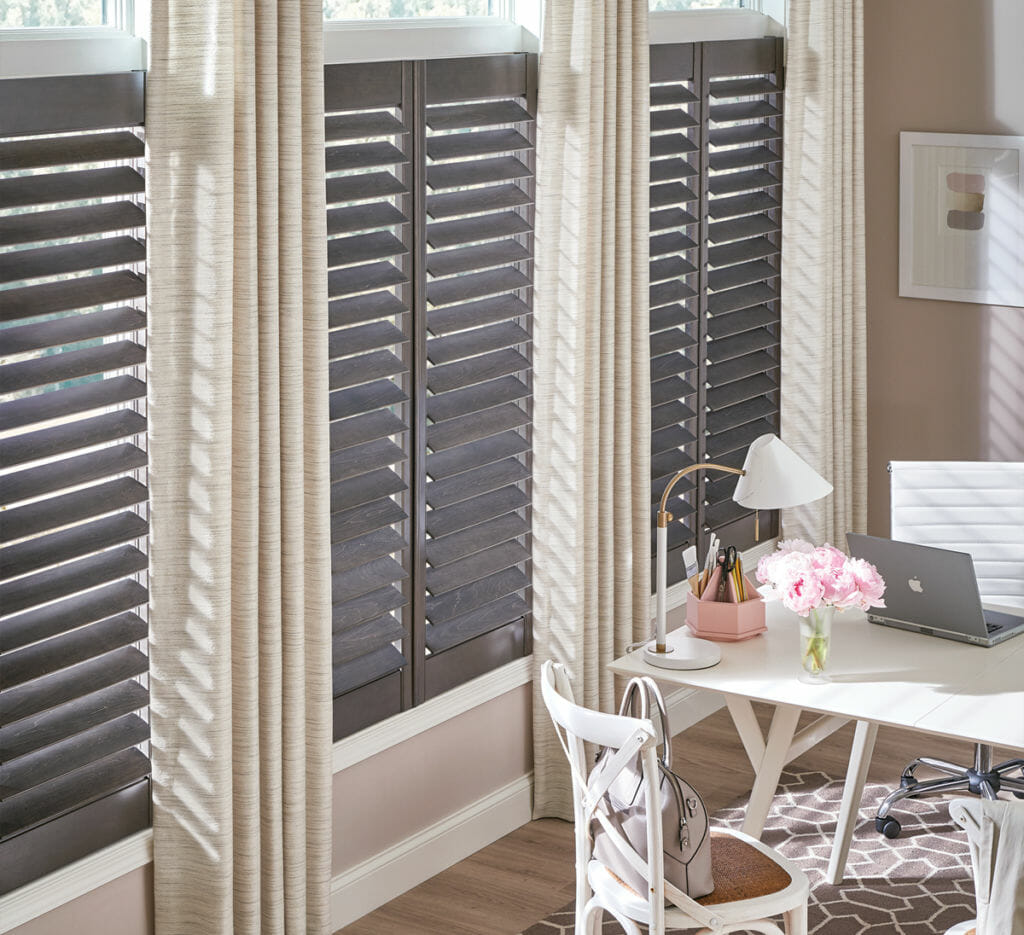
This design uses several types of contrast. Perhaps the most obvious is the texture: the soft, light-absorbing drapes are visually very different than the smooth, hardwood hutters. While in the same color family, the shutters create contrast as one of the darker accents in the room. Last, there is a visual contrast created between the heights of the window treatments: the drapes run floor-to-ceiling, while the custom plantation shutters cover just the windows.
EXPLORE THESE STYLES
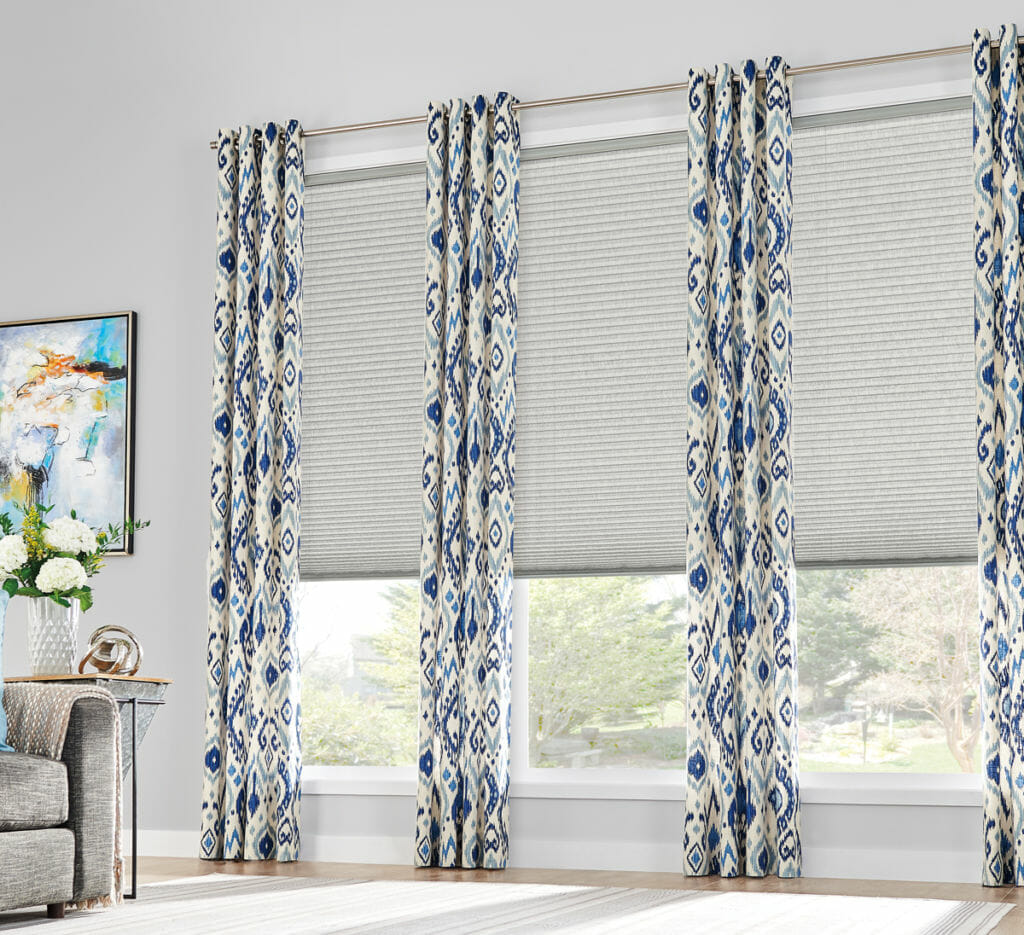
Contrast can also be created through the use of solid colors and patterns. Here, we see a neutral-colored cellular shade that matches the room’s wall color paired with a bold-patterned drape. The background of the drape is a neutral white, allowing the blue pattern to stand out with nice contrast against the cellular shades and walls.
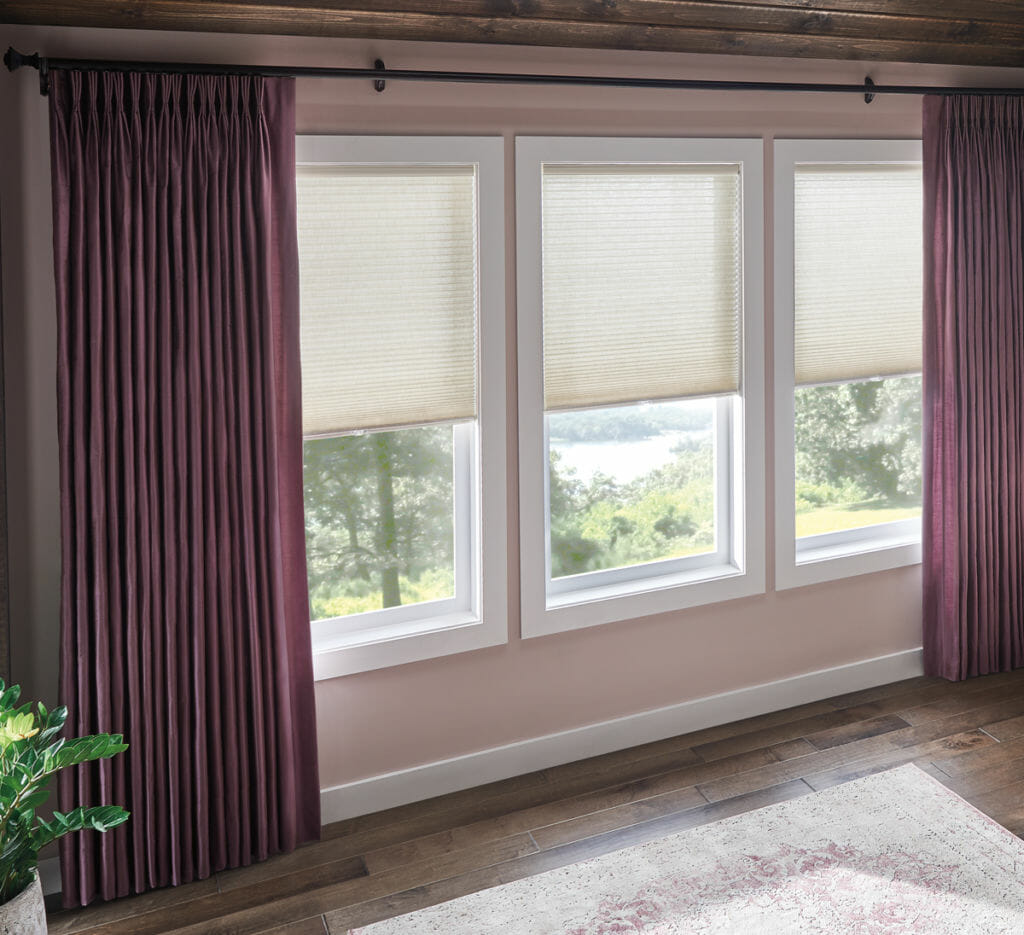
The tall statement windows in this room show another good example of creating contrast with color. The light cream colored cellular shades are light colored, along with the walls and trim. The dark plum purple floor-to-ceiling drapes make a bold color statement, contrasting with the lighter surfaces around them.
EXPLORE THESE STYLES
Creating Privacy: Using day and night layers to shield your sanctuary
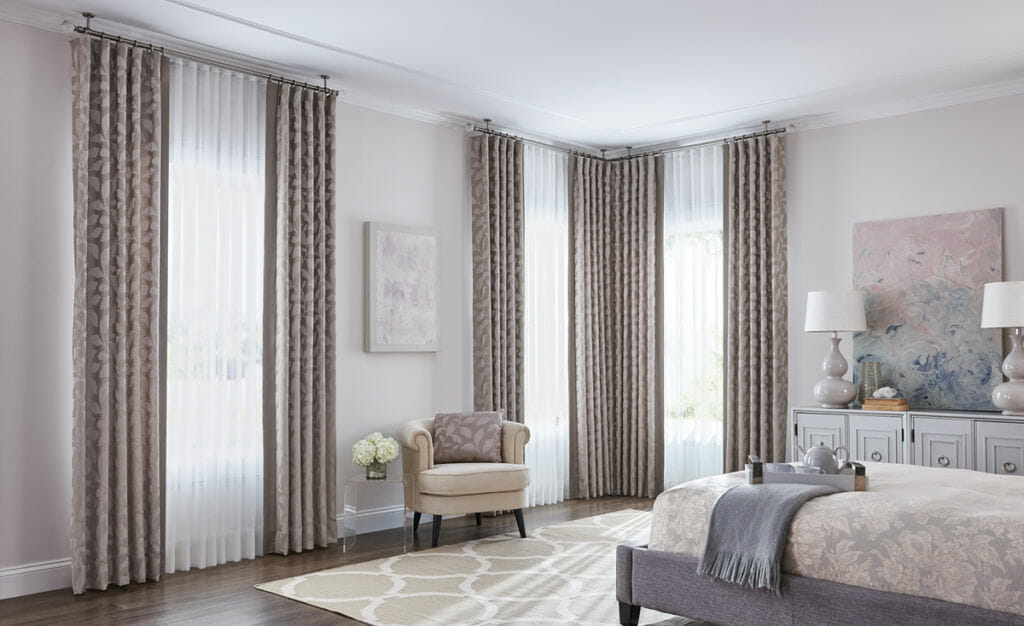
Layered window treatments aren’t just for great design. You can also combine the strengths of two different treatments for more versatile functions at every window. Sheer curtains obscure the views into your home during the day while still allowing soft, glowing light to diffuse into your home. At night, though, sheer curtains aren’t great for privacy—if you have the lights on, people will be able to see right into your home. This is where layering drapes comes in: closing the opaque outer drapes at night allows for privacy in your home.
EXPLORE THIS STYLE
Create Darkness: Double up for day-and-night blackout
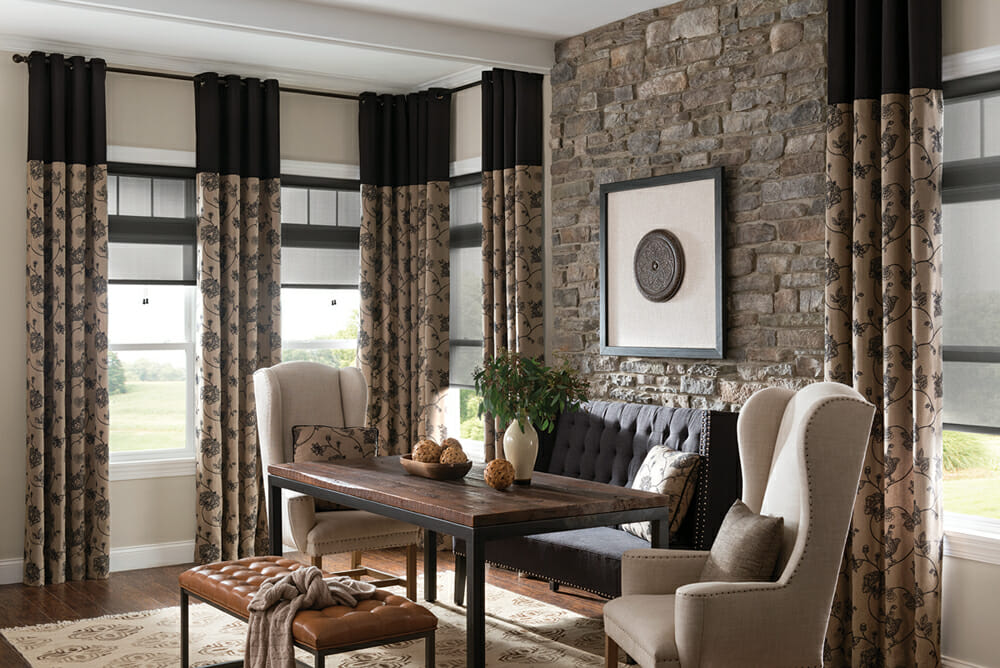
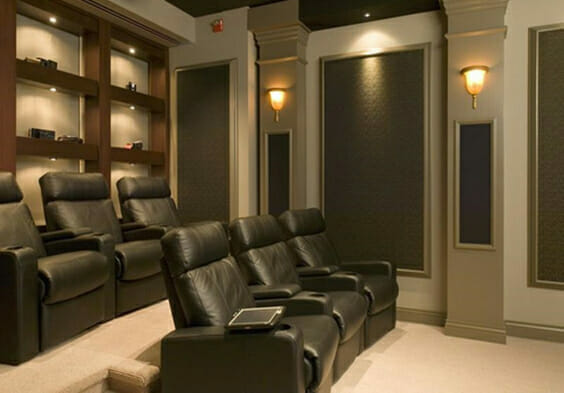
The blackout approach is more about function than aesthetics, but that doesn’t mean it can’t look nice! If you’re looking for a blackout effect for a bedroom, living room, or home theater, the best way to achieve total darkness is to layer two window treatments. Popular combinations include:
- Roller shades paired with drapes
- Cellular shades paired with drapes
- Roller shades beneath Roman shades
» You might also be interested in Darken the Room: Different styles for different settings

